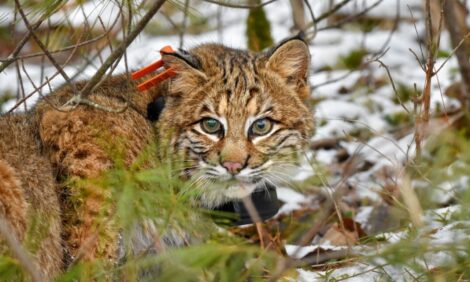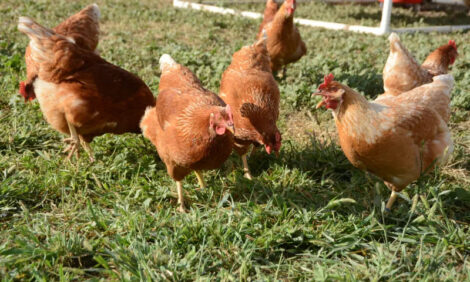



Arkansas' Secretary of Agriculture speaks on labor, supply chain disruptions, inflation
Arkansas poultry continues to struggle with labor, supply chain disruptions, input costs and inflationWes Ward, Secretary of Agriculture in Arkansas, USA, spoke to The Poultry Site’s Sarah Mikesell at The Poultry Federation’s Symposium for Production and Processing held recently in Rogers, Arkansas.
It’s no secret that poultry is important to Arkansas agriculture; Ward explains why.
“It's incredibly big, and we're very proud of our poultry industry. Agriculture is our state's largest industry, and poultry makes up about 50% of that,” he said. “We've seen poultry expand from more of the northwest part of the state throughout the entire state, so it's been pretty incredible to watch and see it grow really across the state.”
About 30% of Arkansas’ agriculture production is exported, making poultry a big part of the export conversation that Ward or Arkansas Governor Asa Hutchinson has while traveling the world. The northwest Arkansas region where the Symposium was held is home to many big businesses involved in the poultry value chain.
“We've got great partnerships here in Arkansas, and …our agriculture industry works well together. The Poultry Federation being here for this Symposium is a great testament to that - where everybody comes together throughout the industry to work together,” he said. “A lot of people when they look at our state, they think Walmart, they think Tyson, they think JB Hunt, and those companies all have an agricultural background. Tyson is just incredibly important in the poultry industry, and even beyond poultry to the protein sector as a whole. When you look at JB Hunt and the transportation sector, that started with hauling rice hulls from eastern Arkansas to northwest Arkansas for the poultry industry. Poultry has a significant impact on our state, our history and our heritage. A lot of our economic impact as a whole comes from poultry.”
Challenges facing the poultry industry
Ward said labor issues continue to plague the poultry industry, along with supply chain disruptions, high producer input costs and inflation.
“Everybody across the board is dealing with these challenges, supply chain disruptions and inflation. Agriculture is no different; the poultry industry is no different,” he said. “We saw those disruptions early on with coronavirus - just being able to get people to work the processing and the production side of things.”
Ward believes the poultry industry has learned a lot and found some better ways of doing things, including better ways of taking care of employees to be able to provide the food that we all depend on. He said we’re still learning and adapting and expects more changes and advancements in the industry as we move beyond the pandemic.
As USDA studies processing line speeds for poultry, Ward said small changes like line speed can make a big difference when looking at the total volume of the poultry industry.
“Whether it's faster or slower, different space requirements, different things like that, overall make can make a difference on a bottom line and your availability to move product and get it out and get it to consumers who are asking for it,” he said. “We've seen a demand for poultry products, and we think that demand is going to continue. Going back to the whole trade issue, people want poultry products - they're safe, they're affordable. They want them not only here in Arkansas, but across the country and across the globe. So, we've got to make sure that our production processes are effective and efficient to be able to provide that for consumers who are wanting it.”
Sustainable practices drive efficiency
“It's not only just production and processing efficiency, it's also what do we do with byproducts, what we do with water, what do we do in energy - whether it's solar or clean water, water recycling and surface water versus groundwater,” he explained. “Everybody's looking at sustainability - it has been kind of a buzzword - but it's a lot of those things are being implemented and finding better ways to produce, to be profitable and make a difference and provide food for the world. Every little bit counts, so we're looking at every single factor across the board to make sure that we're being as effective and efficient as we can be."









